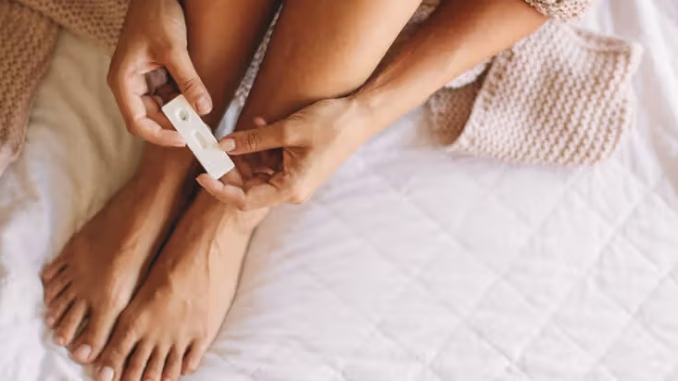
A woman’s fertility is closely linked to her menstrual cycle, which typically lasts around 28 days but can vary. To understand when pregnancy can occur after a period, it’s important to know the phases of the cycle, including menstruation, the follicular phase, ovulation, and the luteal phase......See Full Story>>.....See Full Story>>
Menstruation: This phase marks a woman’s period, typically lasting 3-7 days. During this time, the uterus sheds its lining, and fertilization does not occur.
Follicular Phase: Overlapping with menstruation, this phase continues until ovulation. It starts on the first day of menstruation and lasts until ovulation. Hormones like estrogen increase, prompting the ovaries to prepare eggs for release. The follicular phase can range from 7 to 21 days, depending on the woman’s cycle length.
Ovulation: Ovulation typically occurs around day 14 of a 28-day cycle, though this can vary. A mature egg is released from the ovary into the fallopian tube, where it may be fertilized by sperm. Ovulation is the most fertile phase, and the egg remains viable for 12-24 hours.
Luteal Phase: Following ovulation, the luteal phase begins. If the egg isn’t fertilized, it disintegrates, and the body prepares for the next period. This phase lasts about 12-14 days.
Regarding pregnancy immediately after a period, the timing of ovulation plays a key role. Sperm can survive for up to five days in the female reproductive tract, so if a woman has a shorter cycle (e.g., 21-24 days), ovulation might occur soon after her period ends. In such cases, unprotected sex shortly after menstruation can result in sperm still being viable when ovulation occurs, increasing the chances of pregnancy.
For women with longer cycles, ovulation typically happens later, so the chances of pregnancy immediately after a period are lower. However, because cycle lengths can vary, it’s difficult to predict ovulation with certainty. Women who want to avoid pregnancy should consistently use contraception, regardless of cycle timing.
In conclusion, while the chances of pregnancy right after menstruation are generally low for women with longer cycles, it’s still possible, particularly for those with shorter cycles, due to sperm survival and the timing of ovulation.